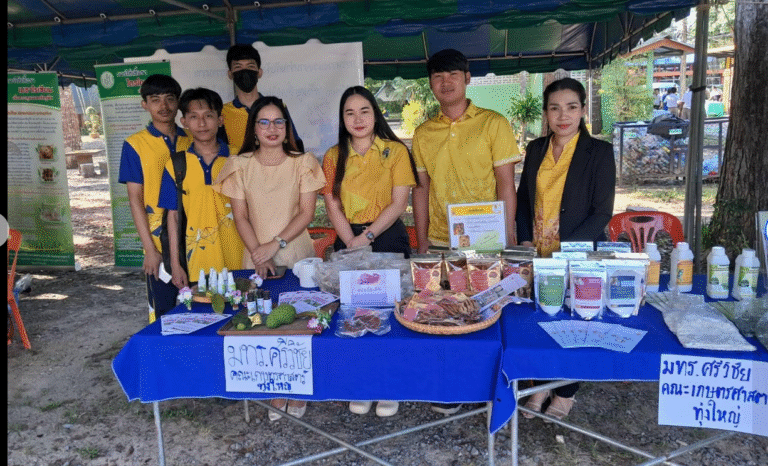Reporters:
Assoc. Prof. Dr. Chatree Homkhiew
Assist. Prof. Dr. Thanwit Naemsai
Assist. Prof. Dr. Thanakorn Damsud
Assist. Prof. Dr. Kosin Teeparuksapun
Evidence Date: in the period January-December 2024
Related Indicators: 9.4
Details:
The Office of Innovation Management and Technology Transfer (IMTT) at Rajamangala University of Technology Srivijaya, in collaboration with the Department of Industrial Promotion (DIPROM), has implemented a community-based product development project that directly contributes to SDG9: Industry, Innovation, and Infrastructure. This project enhances the value and competitiveness of local agricultural products by introducing labor-saving technologies, fostering sustainable industrialization at the grassroots level. This report outlines the results of labor-saving technology development activities conducted under Project 3.2-1: Upgrading Agricultural Products to Agro-Industry, funded by the fiscal year 2024 budget. The report is submitted to the Regional Industrial Promotion Center 11, under the Department of Industrial Promotion, Ministry of Industry.
To execute the project and maximize its impact on SDG9, the IMTT Office established a working committee comprising experts in labor-saving technology development, tasked with promoting and upgrading agricultural products to agro-industrial standards. The project specifically targeted three community-based occupational groups, recognizing that supporting these enterprises is crucial for inclusive and sustainable economic growth:
The Housewives Agricultural Community Enterprise of Ban Khlong Chanuan, Tambon Chumphon, Amphoe Sathing Phra, Songkhla Province.
The Jay Smey Meatball Community Enterprise Group, Tambon Thung Wang, Amphoe Mueang Songkhla, Songkhla Province.
The Housewives Agricultural Group of Ban Hua Kaming, Tambon Khuan Don, Amphoe Khuan Don, Satun Province.
The project’s core activity – the design, development, and provision of specialized tools to these groups – directly contributes to SDG9 by fostering innovation and upgrading the technological capabilities of small-scale industries. The results of the knowledge transfer and tool implementation demonstrated significant satisfaction among the enterprises participating. These tools effectively increased work convenience, improved production efficiency, and enhanced overall production capacity. Critically, they also contributed to reducing production time and improving quality control, thereby supporting the sustainable growth of these community enterprises and building resilient local infrastructure for agro-industrial development. The project’s success exemplifies how targeted interventions can empower communities and drive progress towards SDG9.
The development of labor-saving technologies for the three occupational groups has significantly improved production efficiency and reduced reliance on manual labor. An evaluation of the outcomes and economic impact of the labor-saving technology development activities for community-based agricultural processing, under Project 3.2-1: Upgrading Agricultural Products to Agro-Industry, funded by the Regional Industrial Promotion Center 11 under the Department of Industrial Promotion, revealed a Return on Investment (ROI) of 1.70 times. This was achieved through an estimated annual net income increase of 357,121.08 THB, supported by a budget allocation of 210,000 THB. The economic impact assessment, based on cost and revenue analysis, showed that the project positively influenced income levels. The target groups experienced a total income increase of 16,433.82 THB, representing an average net income growth of 71.18%. Additionally, the project led to cost reductions, with the target communities saving a total of 6,986.00 THB, equivalent to an average cost reduction of 1.97%. The analysis of the project’s impact, which included both increased net income and reduced costs, covered the period from the project’s implementation until its conclusion. It is evident that if the target communities receive further support in product upgrading and diversification of sales channels, it will lead to sustainable income enhancement for these communities. The knowledge transfer on the use of tools to assist community enterprises in improving work convenience, production efficiency, and capacity yielded high levels of satisfaction among the participants. The tools, which were designed, developed, and provided to the entrepreneurs, effectively facilitated production processes, reduced production time, and improved quality control. Despite the introduction of these labor-saving tools, which reduced production time, decreased manual labor, and increased production volume, field observations revealed that all businesses maintained their employment rates without any reduction in workforce. This indicates that the project did not negatively impact on employment. Community members continued to work as usual, and in some cases, businesses that previously halted production during the rainy season, leaving community members without income, were able to generate income year-round. This has positively contributed to the overall economic system of the country.
To enhance their production capacity and promote sustainable practices in line with SDG9 (Industry, Innovation, and Infrastructure), the Housewives Agricultural Community Enterprise of Ban Khlong Chanuan, Tambon Chumphon, Amphoe Sathing Phra, Songkhla Province, received a fine miller machine (Figure 1) as part of the labor-saving technology development project. Similarly, the Jay Smey Meatball Community Enterprise Group, Tambon Thung Wang, Amphoe Mueang Songkhla, Songkhla Province, received a meat grinder machine (Figure 2) to streamline their production process and support sustainable growth. Finally, the Housewives Agricultural Group of Ban Hua Kaming, Tambon Khuan Don, Amphoe Khuan Don, Satun Province, benefited from the project through the provision of an oil separator machine (Figure 3), aimed at improving efficiency and product quality while promoting environmentally sound practices.
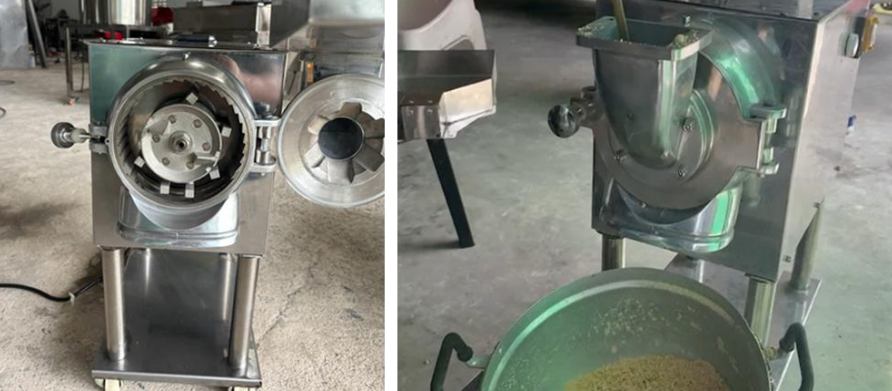
Figure 1. Fine miller machine

Figure 2. Meat grinder machine
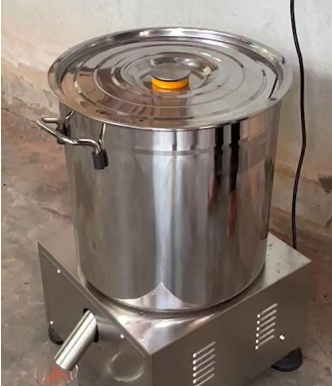
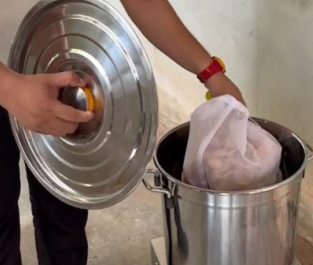
Figure 3. Oil Separator machine
The Office of Innovation Management and Technology Transfer (IMTT) was honored to receive the Certificate of Exemplary Achievement from Mr. Phasakorn Chaiyarat, Director-General of the Department of Industrial Promotion (DIPROM), in recognition of our contributions to labor-saving and advanced production technology development for agricultural processing. This prestigious award, recognizing “Applied Technology Selected as One of the 20 Exemplary Models of 2024” from a pool of 64 submissions, underscores the impact of our commitment to smart agricultural technology and industrial innovation. Of the five projects submitted by our office, three were selected as outstanding innovations:
- Banana Slicing Machine
- Robusta Coffee Roaster
- Crispy “Ngoh” Snack Mold Machine
This recognition validates our efforts to drive technological advancements in Thailand’s agro-processing sector, empowering local communities and fostering sustainable growth (Figure 4).

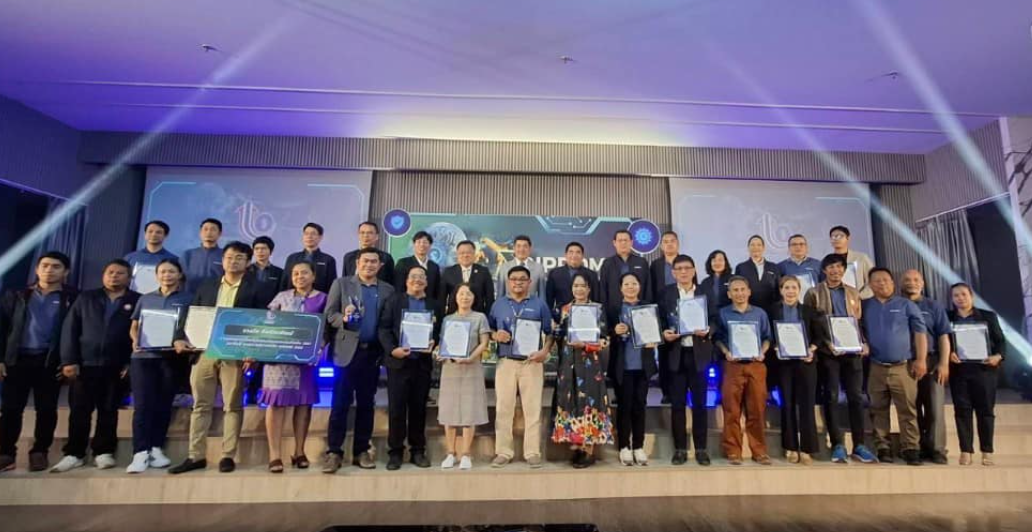
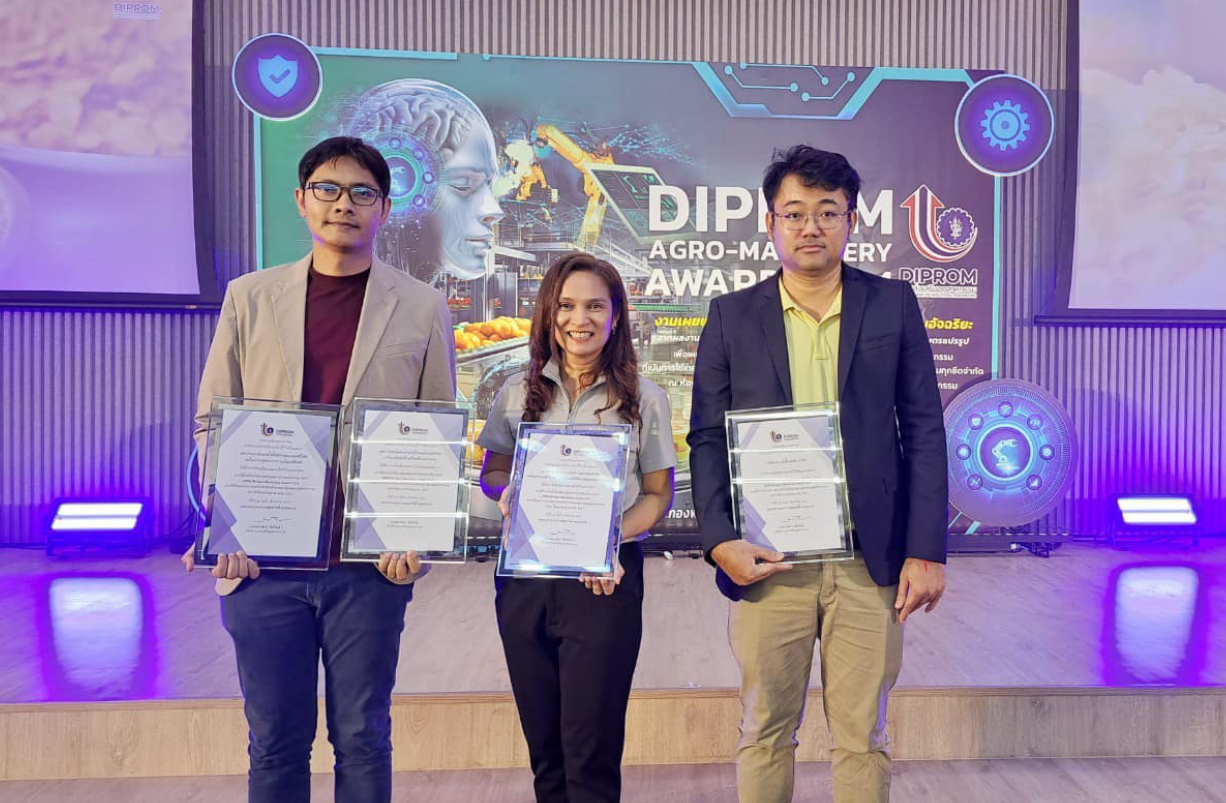
Figure 4. Certificate of Exemplary Achievement
Related Links: https://www.facebook.com/IMTTRUTS




